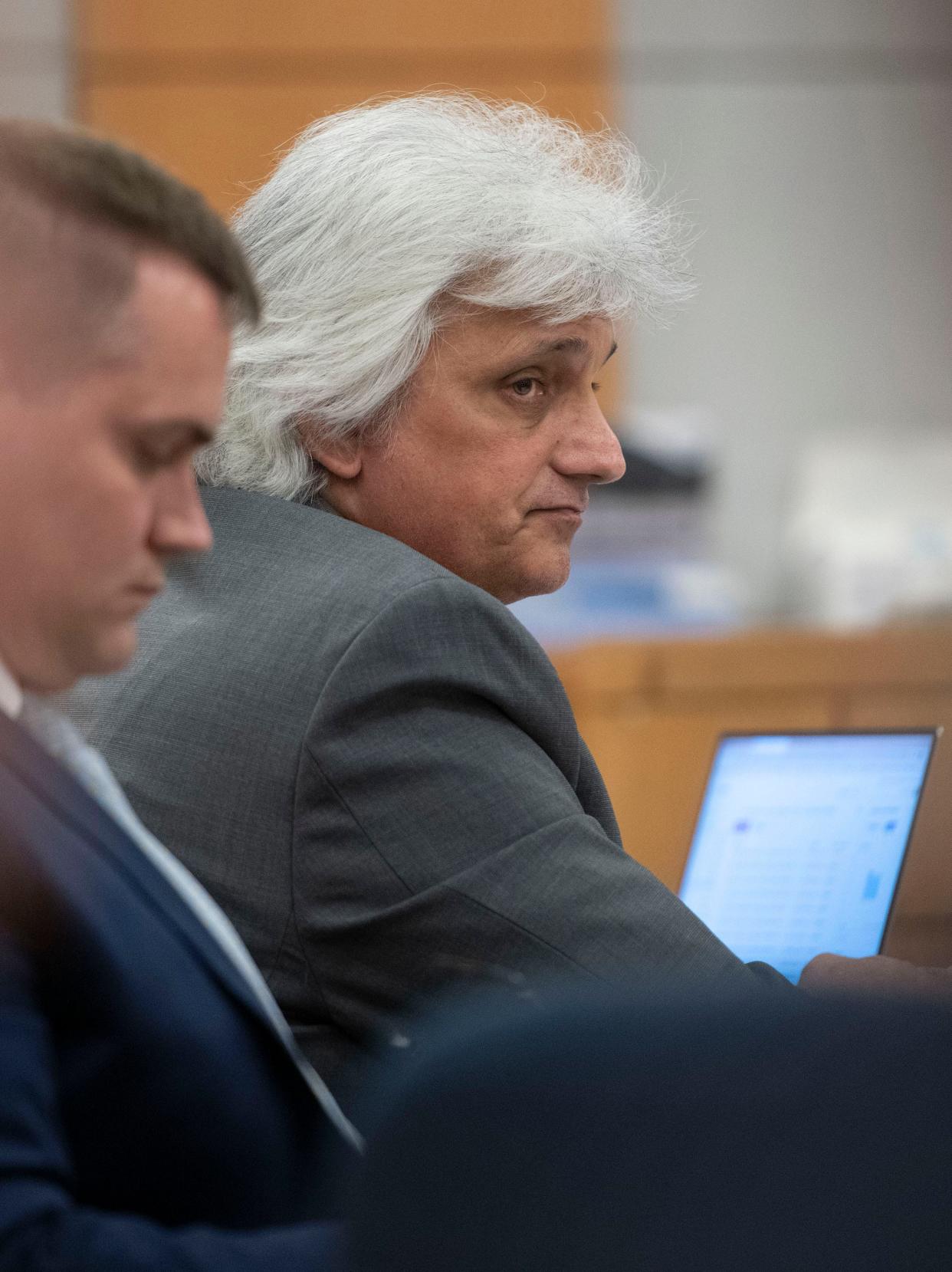Greg Malarik homicide trial ends in mistrial. What happened, and what happens next?

The 21-year-old mystery of who killed Sherri Malarik remains a mystery for now.
At roughly 7 p.m. Friday, Judge John Simon declared a mistrial in the homicide trial of Gregory Malarik. Malarik is a Cantonment man accused of the Sept. 21, 2001, death of his wife, Sherri Malarik, who was found in a Winn Dixie parking lot stuffed into the passenger side floorboard of the family van.
Jurors heard nearly a week of testimony about the circumstances around the death, but on Friday evening announced they could not come to a unanimous decision after approximately four hours of deliberation.
Gregory Malarik was arrested in 2020, nearly 20 years after his wife's death.
From the trial
'I figured it was time': Gregory Malarik's girlfriend testifies she helped him leave crime scene
First day of court: Malarik children testify in mother’s murder trial
Bullet controversy: NCIS investigator thought bullet fragments were tested. They weren’t.
Cold case: Trial begins today for Cantonment man who allegedly murdered wife in 2001
After a four-day trial, attorneys began closing arguments Friday morning to summarize the evidence presented to the jury. Here are their arguments:
Prosecution
Prosecuting attorney Amy Shea told the jury that Gregory Malarik had the motive, means and opportunity to kill his wife on Sept. 21, 2001, and laid out how she believes he carried out the task.
"He's having an affair and he wants an easy out," Shea said. "That's the motive."
Jennifer Spohn and Gregory Malarik began an affair while Sherri was deployed to Greece through the U.S. Navy. Spohn, who also had been the family babysitter, testified earlier in the week that during the affair Gregory told her that killing Sherri would be easier than a divorce.
Shea then continued with Malarik's means to kill his wife — the .25 caliber gun.
During Sherri's autopsy, a .25 caliber bullet shell casing fell out of her clothing, but the gun that shell casing came from has not been found.
Sherri and Gregory's children, Gregory "Little Greg" Malarik and Jacob Malarik, both testified that they remember their father showing them a "small gun" they never saw again after Sherri's murder.
Brian Petsel, a friend of Gregory Malarik's, testified they had a discussion with one another about .25 caliber guns at a shooting range while Sherri was deployed.
"We had discussed a .25 caliber handgun, or at least a small semiautomatic weapon, while we were in the office one day," Petsel said during his testimony. "While we were at the shooting range (Gregory) mentioned that he had forgotten to buy ammunition for the .25 (caliber)."
Shea concluded her argument by explaining Malarik's opportunity to murder Sherri. She noted that he had his own private backyard, with his own van and easy access to his wife.
The prosecution also noted that Gregory gave himself plausible deniability by calling multiple law enforcement agencies, stores and family members the night Sherri was killed and the morning following the crime.
"Thirty calls for information, no calls for action," Shea said.
"The only real possibility, after you eliminate all the other things is this: the adulterous husband with the motive," Shea told the jury. "All of it points to Greg Malarik."
Defense
Gregory Malarik's defense attorney Chris Crawford told the jury that Spohn could have been the killer if it were based on the three things Shea told the jury makes Malarik the killer, removing the reasonable doubt required to levy a conviction for first-degree murder.
While the prosecution said Malarik had the motive to kill his wife, Crawford told the jury that Spohn had an even greater motive to carry out the homicide.
He referenced Spohn's earlier testimony when she told the court her husband divorced her and took all their money before her affair with Malarik started.
"Here comes along Greg," Crawford explained to the jury. "Greg can be the person she doesn't have.
"So if we're just grading, we're just stepping back, and we're looking at that table like Jennifer's there and the State's trying the case against Jennifer, who would the state say has more motive?" Crawford continued. "Jennifer has more motive."
He then argued that the prosecution's timeline would look similar if Spohn committed the crime, because Spohn lived approximately three miles from the Malarik home.
Crawford also noted that Spohn's testimony changed multiple times over multiple interviews, stating that her testimony went from "no plan" and "no murder" to "knows the time to be there" at Winn Dixie and says there are bags of clothes with a "gun she's never described."
"This charge was premeditated murder," Crawford said. "If Jennifer Spohn is sitting at that table next to any other defense attorney like me … would the (prosecution) have proven that she could have done the shooting just as well?"
If the question is anything other than no, then there is reasonable doubt Malarik did not kill his wife in 2001, he argued.
Judge John Simon gave the jury instructions including the options of finding Malarik guilty of the lesser charges of second-degree murder with a firearm or manslaughter with a firearm.
The jurors entered deliberation early Friday afternoon, but a mistrial was declared when they failed to reach a unanimous verdict.
Simon said that the case will undergo a new trial with a new jury. Currently, jury selection for the new trial is scheduled for Oct. 26, 2022.
Benjamin Johnson can be reached at bjohnson@pnj.com or 850-435-8578
This article originally appeared on Pensacola News Journal: Sherri Malarik murder: Hung jury means Greg Malarik faces second trial

